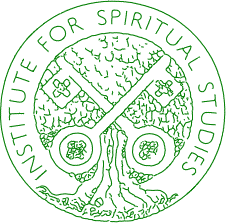

|
Seminar 7:
|
Note: Unfortunately, this seminar has been cancelled.Please contact ISS for a refund if you have already paid for this day.
2007 saw Australians accepting that climate change, for whatever its causes, was a reality that demanded action, both locally and globally. The development of public opinion was remarkable and made climate change a prime issue in the Federal election. It also saw the churches asking questions about their role. The effects of climate change will initially hit those least able to cope, both within Australia and globally. What values are Australians bringing to bear upon the way they are meeting the ever increasing challenges? What 'talents' do people of faith have to contribute? Climate Change: Where does 'Local' become 'Global'?Many individuals and households are trying to reduce their greenhouse gas emissions. Some cities and nations are increasingly doing the same. A tectonic shift has occurred around us - we are in the middle of a major new wave of cultural change. But can adequate action come from individuals or "the bottom up"? What is the balance between each of us indiviually, in our families, neighbourhoods, parishes, workplaces, catchments with our national responsibilities? And how do we take account of living in an island of affluence in a virtual sea of developing economies? As Christians, we have wrestled with similar issues in terms of our individual and collective spirituality and responsibilities. Can the lessons we have learnt illuminate the most pressing issue of our times? Are there practical approaches that we can discuss to frame this debate and - at the end of this session - leave with a better sense of what is needed to be done? And, of course, do it! Wayne Wescott is CEO of ICLEI — Local Governments for Sustainability — a non-profit organisation working with cities around the world on local sustainability. Wayne is heavily involved in global approaches to climate change as well as directing a campaign that assists over 240 cities to take action — thus saving 13 million tonnes of greenhouse gases so far in Australia. Wayne has been involved in the environment movement for many years, as well as working privately and for State governments. When not travelling, he is a regular parishioner at St Peter's, Eastern Hill. ICLEI's mission is to build and serve a worldwide movement of local governments to achieve tangible improvements in global sustainability with a special focus on environmental conditions through cumulative local actions. Changing Together: Realities for poor communities and Partnerships for climate change action and advocacyThe poorest communities in our world appear set to be among the worst affected by climate change. AngliCORD supports marginalised communities in developing countries - what impact are changing climates having on these partners in countries like the Solomon Islands and Tanzania? How is AngliCORD working with these partners to plan for a sustainable future? What role can Australia's humanitarian aid play in demonstrating to our region that we are active and concerned neighbours on the issue of climate change? Is church-based advocacy for national policy change on climate change making any difference, and do church-based agencies such as AngliCORD play a role in national debate and action? Alison Preston works with AngliCORD — an international relief and community development agency of the Anglican church of Australia. www.anglicord.org.au. After training as a journalist, Alison has combined her interests in international development, social justice, faith and information exchange through communications and advocacy roles with international aid and development organisations over the past ten years. Alison has worked in the Middle East and East Africa, and has a particular interest in promoting individual and community recovery after civil conflict. Alison is a member of St Jude's Anglican church, Carlton, and a 'fresh expression' of church in Melbourne's inner north called Living Room.
|